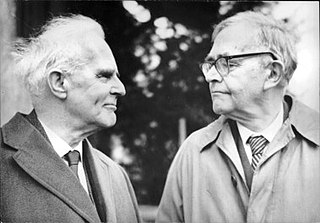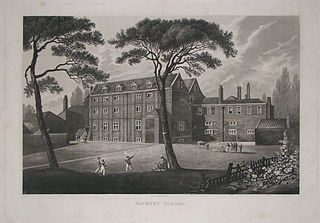
The Oxford English Dictionary (OED) is the principal historical dictionary of the English language, published by Oxford University Press (OUP), a University of Oxford publishing house. The dictionary, which published its first edition in 1884, traces the historical development of the English language, providing a comprehensive resource to scholars and academic researchers, and provides ongoing descriptions of English language usage in its variations around the world.

Yule is a winter festival historically observed by the Germanic peoples that was incorporated into Christmas during the Christianisation of the Germanic peoples. In present times adherents of some new religious movements celebrate Yule independently of the Christian festival. Scholars have connected the original celebrations of Yule to the Wild Hunt, the god Odin, and the heathen Anglo-Saxon Mōdraniht. The term Yule and cognates are still used in English and the Scandinavian languages as well as in Finnish and Estonian to describe Christmas and other festivals occurring during the winter holiday season. Furthermore, some present-day Christmas customs and traditions such as the Yule log, Yule goat, Yule boar, Yule singing, and others may have connections to older pagan Yule traditions.
Webster's Dictionary is any of the US English language dictionaries edited in the early 19th century by Noah Webster (1758–1843), a US lexicographer, as well as numerous related or unrelated dictionaries that have adopted the Webster's name in his honor. "Webster's" has since become a genericized trademark in the United States for US English dictionaries, and is widely used in dictionary titles.

Charles Talbut Onions was an English grammarian and lexicographer and the fourth editor of the Oxford English Dictionary.
Henry Watson Fowler was an English schoolmaster, lexicographer and commentator on the usage of the English language. He is notable for both A Dictionary of Modern English Usage and his work on the Concise Oxford Dictionary, and was described by The Times as "a lexicographical genius".

Eric Honeywood Partridge was a New Zealand–British lexicographer of the English language, particularly of its slang. His writing career was interrupted only by his service in the Army Education Corps and the RAF correspondence department during World War II.

Henry Sweet was an English philologist, phonetician and grammarian.
Robert William Burchfield CNZM, CBE was a lexicographer, scholar, and writer, who edited the Oxford English Dictionary for thirty years to 1986, and was chief editor from 1971.
Folk etymology – also known as (generative) popular etymology, analogical reformation, (morphological)reanalysis and etymological reinterpretation – is a change in a word or phrase resulting from the replacement of an unfamiliar form by a more familiar one through popular usage. The form or the meaning of an archaic, foreign, or otherwise unfamiliar word is reinterpreted as resembling more familiar words or morphemes.

The Shorter Oxford English Dictionary (SOED) is an English language dictionary published by the Oxford University Press. The SOED is a two-volume abridgement of the twenty-volume Oxford English Dictionary (OED).
A dirk is a long-bladed thrusting dagger. Historically, it gained its name from the Highland dirk where it was a personal weapon of officers engaged in naval hand-to-hand combat during the Age of Sail as well as the personal sidearm of Highlanders. It was also the traditional sidearm of the Highland Clansman and later used by the officers, pipers, and drummers of Scottish Highland regiments around 1725 to 1800 and by Japanese naval officers.

A parvis or parvise is the open space in front of and around a cathedral or church, especially when surrounded by either colonnades or porticoes, as at St. Peter's Basilica in Rome. It is thus a church-specific type of forecourt, front yard or apron.
An etymological dictionary discusses the etymology of the words listed. Often, large dictionaries, such as the Oxford English Dictionary and Webster's, will contain some etymological information, without aspiring to focus on etymology.

Heinrich Emil Brunner (1889–1966) was a Swiss Reformed theologian. Along with Karl Barth, he is commonly associated with neo-orthodoxy or the dialectical theology movement.

This Charles Sanders Peirce bibliography consolidates numerous references to the writings of Charles Sanders Peirce, including letters, manuscripts, publications, and Nachlass. For an extensive chronological list of Peirce's works, see the Chronologische Übersicht on the Schriften (Writings) page for Charles Sanders Peirce.
A rescript is a public government document. More formally, it refers to such a document issued not on the initiative of the author, but in response to a question posed to the author. The word originates from replies issued by Roman emperors to such questions and is also used in modern legal terminology and the Papal curia.

Hello is a salutation or greeting in the English language. It is first attested in writing from 1826.
Jack Arthur Walter Bennett was a New Zealand–born literary scholar.
These lists of English words of Celtic origin include English words derived from Celtic origins. These are, for example, Common Brittonic, Gaulish, Irish, Scottish Gaelic, Welsh, or other languages.

Newcome's School was a fashionable boys' school in Hackney, then to the east of London, founded in the early 18th century. A number of prominent Whig families sent their sons there. The school closed in 1815, and the buildings were gutted in 1820. In 1825 the London Orphan Asylum opened on the site. Today the Clapton Girls' Academy is located here.










